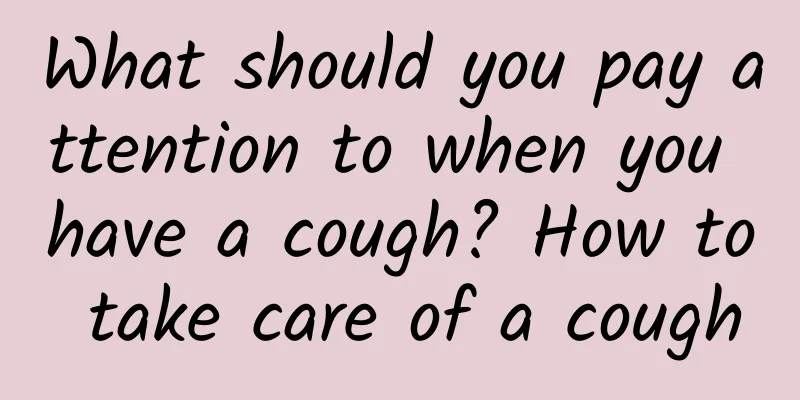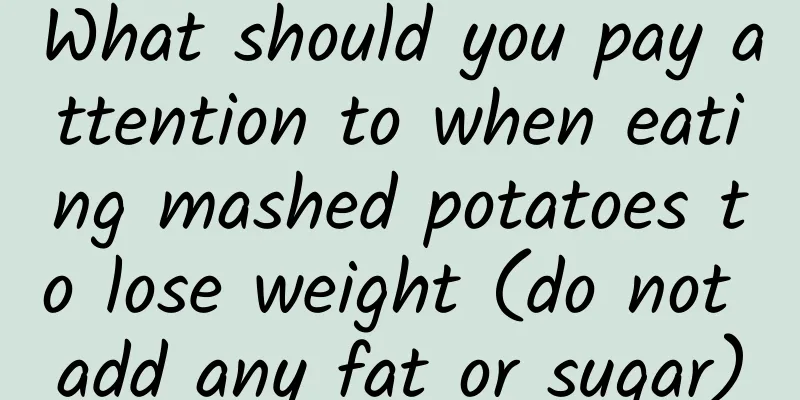What should you pay attention to when you have a cough? How to take care of a cough

|
In autumn and winter, the climate is dry, and people are prone to coughing and sore throats. If coughing keeps you awake, there is a way to relieve it that can help you. Today we will introduce a way to relieve it. In addition, we will focus on what you should pay attention to when you cough. Regardless of whether your cough is contagious, it is recommended that everyone of us follow coughing etiquette. Contents of this article 1. What should you pay attention to when you have a cough? 2. How to take care of a cough 3. Coughing etiquette 1What should you pay attention to when you have a cough?Drink plenty of water Drinking a lot of water helps to thin the phlegm and make it easier to cough up. Boiled water and fruit and vegetable juice are both good recovery drinks. Pear juice, watermelon juice, apple juice, radish juice, etc. are all good cough suppressants. You may drink 4-5 large cups of them every day. But be careful not to add sugar and salt. If you want to drink something sweet, you can add a little honey. Honey has the effect of moistening the lungs and relieving constipation, which helps to alleviate symptoms. Avoid coffee and alcohol Try to avoid drinking beverages containing caffeine and alcohol, as these drinks have a diuretic effect and cause body fluids to be consumed too quickly. Keep the air moist Increasing the humidity of the indoor air can help relieve discomfort such as cough, sore throat, and dry nasal cavity. You can use a humidifier or boil water in a teapot to humidify the air. Elevated pillow If your cough is keeping you awake, there is a way to relieve it that can help. Try sleeping on your side with your pillow raised 20 cm. This can prevent mucus from accumulating and can also prevent irritating acid from the stomach from flowing back into the esophagus and being inhaled. 2How to take care of a cough1. Maintain indoor air circulation and comfortable temperature and humidity, drink plenty of water, avoid cold, and avoid contact with allergens (dust and irritating gases). 2. Avoid excessive fatigue, do appropriate exercise and strengthen your physical fitness. 3. If there are lesions in the upper respiratory tract (nasopharynx and throat), they must be treated and cleared. 4. Do not eat foods that cause allergies, eat more fresh vegetables and fruits, and have a balanced diet. 3Coughing etiquetteRegardless of whether your cough is contagious or not, these cough etiquettes are something everyone must consciously follow. 1. Coughing etiquette When you want to cough or sneeze, whether you are sick or not, you should use napkins, handkerchiefs, or both hands to cover your mouth and nose to prevent the spread of germs; if you don't have time to take a napkin, you can use the "cuff covering method", that is, cover your mouth and nose with the inside of your sleeves, which can also prevent saliva from flying. The above protective measures are particularly important in small and confined spaces. Used napkins should not be thrown anywhere, but should be thrown into the trash can. 2. Etiquette after coughing Another important measure after practicing "cough etiquette" when coughing or sneezing is to wash your hands immediately; otherwise, the germs on your hands can be transferred to the surface of these objects through handshakes, door handles, computer keyboards, etc. While practicing "cough etiquette", we should also pay attention to another small detail in life, that is, keep a certain distance when talking to others, don't talk directly to others, don't speak too loudly, and avoid spitting. 3. Etiquette when you have symptoms When you have a cold, especially in the early stages of the disease when the symptoms are mild, and you have to go to work or go out, and you may share transportation, elevators, and offices with others, you should consciously observe "respiratory hygiene/cough etiquette" and wear a mask to prevent the spread of germs through coughing and sneezing. |
Recommend
How to select shark fin? How to grade shark fin?
Whether it is a must-have dish at a Chinese weddi...
What are the specific ingredients of egg tarts? Simple recipe for egg tart liquid
Egg tarts were one of the dishes in the sixth ban...
What are the nutritional values of avocados? How to eat avocados
In our daily life, we often see avocados, which a...
How long does it take to have sex if there is pelvic effusion?
The pelvic cavity is the general term for the ins...
Can pregnant women do scraping on the back?
Cupping has the functions of regulating qi and bl...
Psoriasis: A Challenging Skin Disease
Psoriasis, a seemingly ordinary term, hides many ...
How to treat uterine erosion
First-degree cervical erosion is generally some p...
How long after giving birth can I take a shower?
Many mothers are worried about the confinement pe...
Spring Guardian Guide: How to deal with pollen allergies?
March is supposed to be a good time for everythin...
Did you know? This is how you should use lotion!
Skin care is a daily compulsory course for women....
How long does bed rest require to preserve the pregnancy?
After a woman becomes pregnant, the fetus is unst...
Causes of white blood cells in urine
Under normal circumstances, white blood cells exi...
Female dizziness, nausea, bloating and vomiting
In daily life, many patients have symptoms of blo...
Where is mangosteen produced? Why is mangosteen so expensive?
Mangosteen contains a variety of nutrients, such ...









